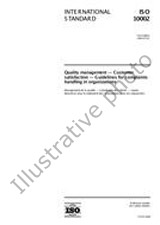We need your consent to use the individual data so that you can see information about your interests, among other things. Click "OK" to give your consent.

ISO 6721-11:2019-ed.2.0
Plastics — Determination of dynamic mechanical properties — Part 11: Glass transition temperature
Translate name
STANDARD published on 29.5.2019
The information about the standard:
Designation standards: ISO 6721-11:2019-ed.2.0
Publication date standards: 29.5.2019
SKU: NS-950984
The number of pages: 14
Approximate weight : 42 g (0.09 lbs)
Country: International technical standard
Category: Technical standards ISO
The category - similar standards:
Annotation of standard text ISO 6721-11:2019-ed.2.0 :
Description / Abstract: This document specifies methods for determining a value of the glass transition temperature (Tg) from the dynamic mechanical properties measured during a linear temperature scan under heating conditions. The glass transition temperature is an indicator of the transition from a hard and relatively brittle glassy state to a rubbery or viscous liquid state in an amorphous polymer or in amorphous regions of a partially crystalline polymer. Usually referred to as dynamic mechanical analysis (DMA), the methods and their associated procedures can be applied to unreinforced and filled polymers, foams, rubbers, adhesives and fibre-reinforced plastics/composites. The methods are limited to materials that are inherently stable above Tg, i.e. amorphous materials that transform into a rubbery state or partially crystalline materials that keep their shape due to crystallinity. Different modes (e.g. flexure, torsion, shear, compression, tension) of dynamic mechanical analysis can be applied, as appropriate, to the form of the source material. Measured Tg values using instrumentation can vary as a result of material characteristics and/or the test set-up. The temperature sensor in a DMA instrument is not in contact with the test specimen and therefore measures temperature of the environment surrounding the specimen under test. The resulting data can vary with the heating rate applied. A procedure is included to take into account the thermal lag influencing the measured data.
We recommend:
Technical standards updating
Do you want to make sure you use only the valid technical standards?
We can offer you a solution which will provide you a monthly overview concerning the updating of standards which you use.
Would you like to know more? Look at this page.



 Cookies
Cookies
